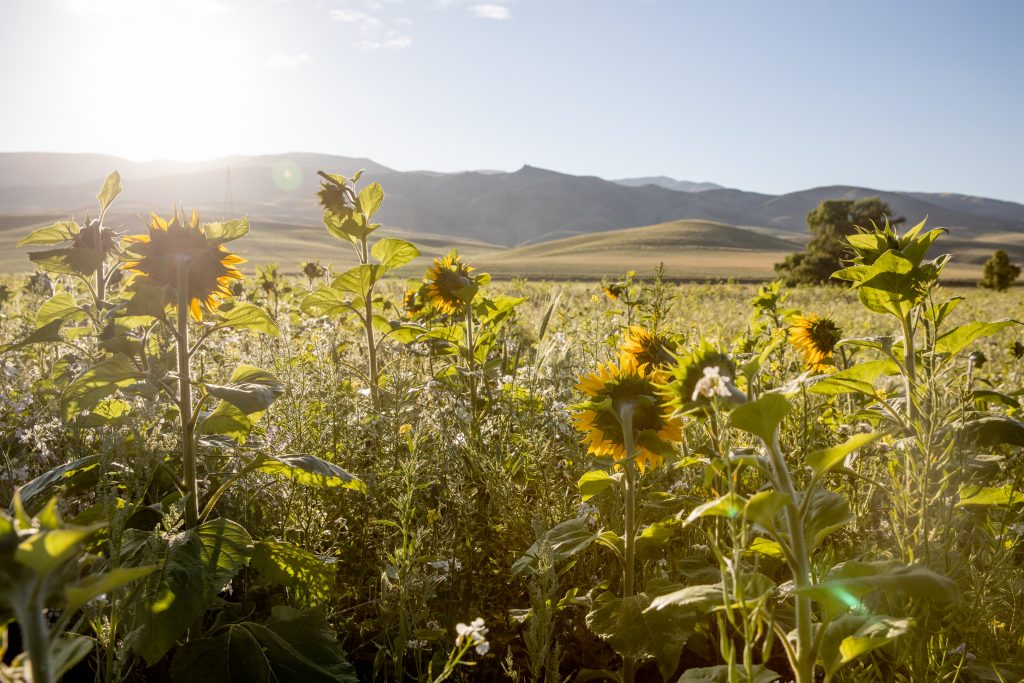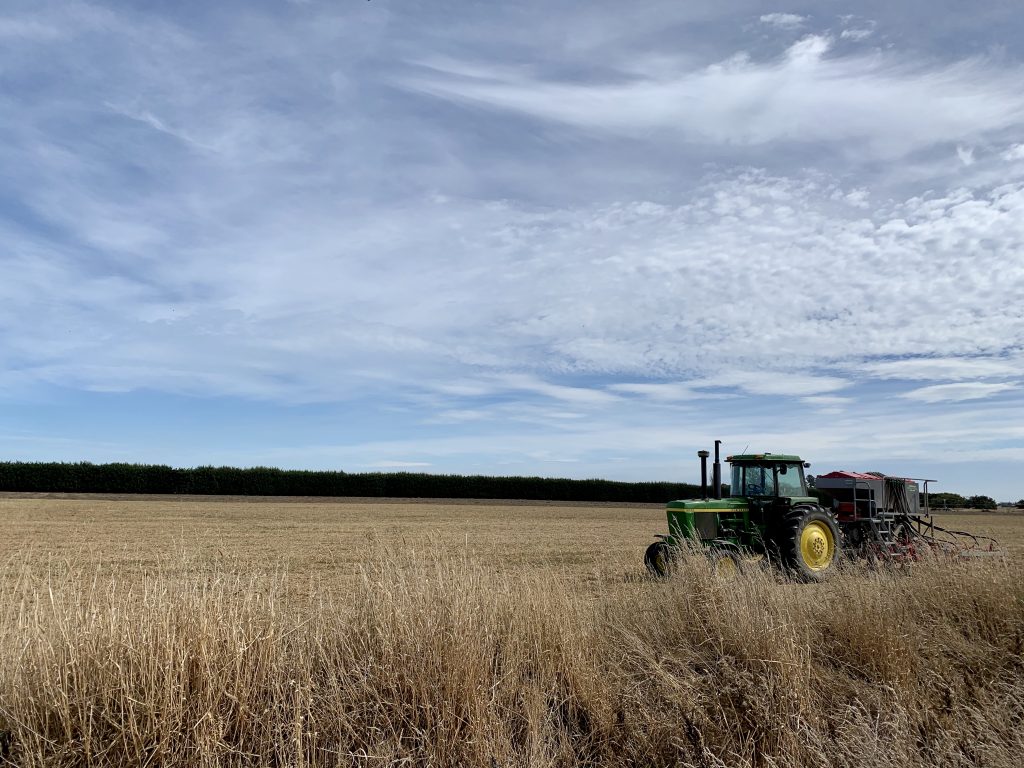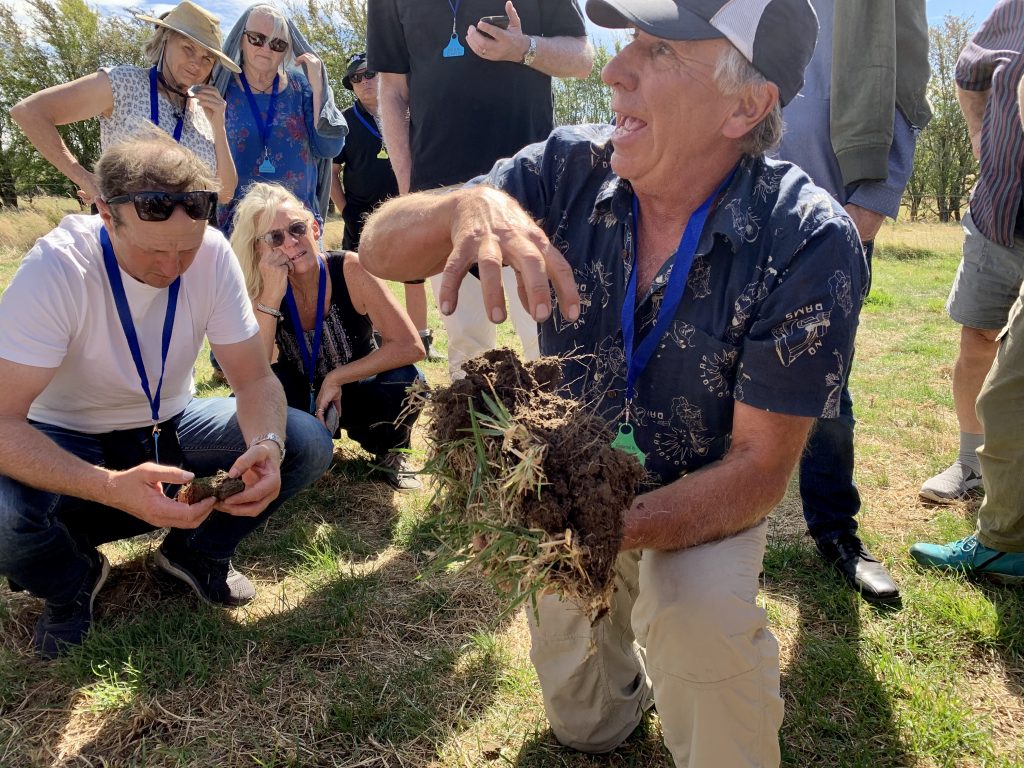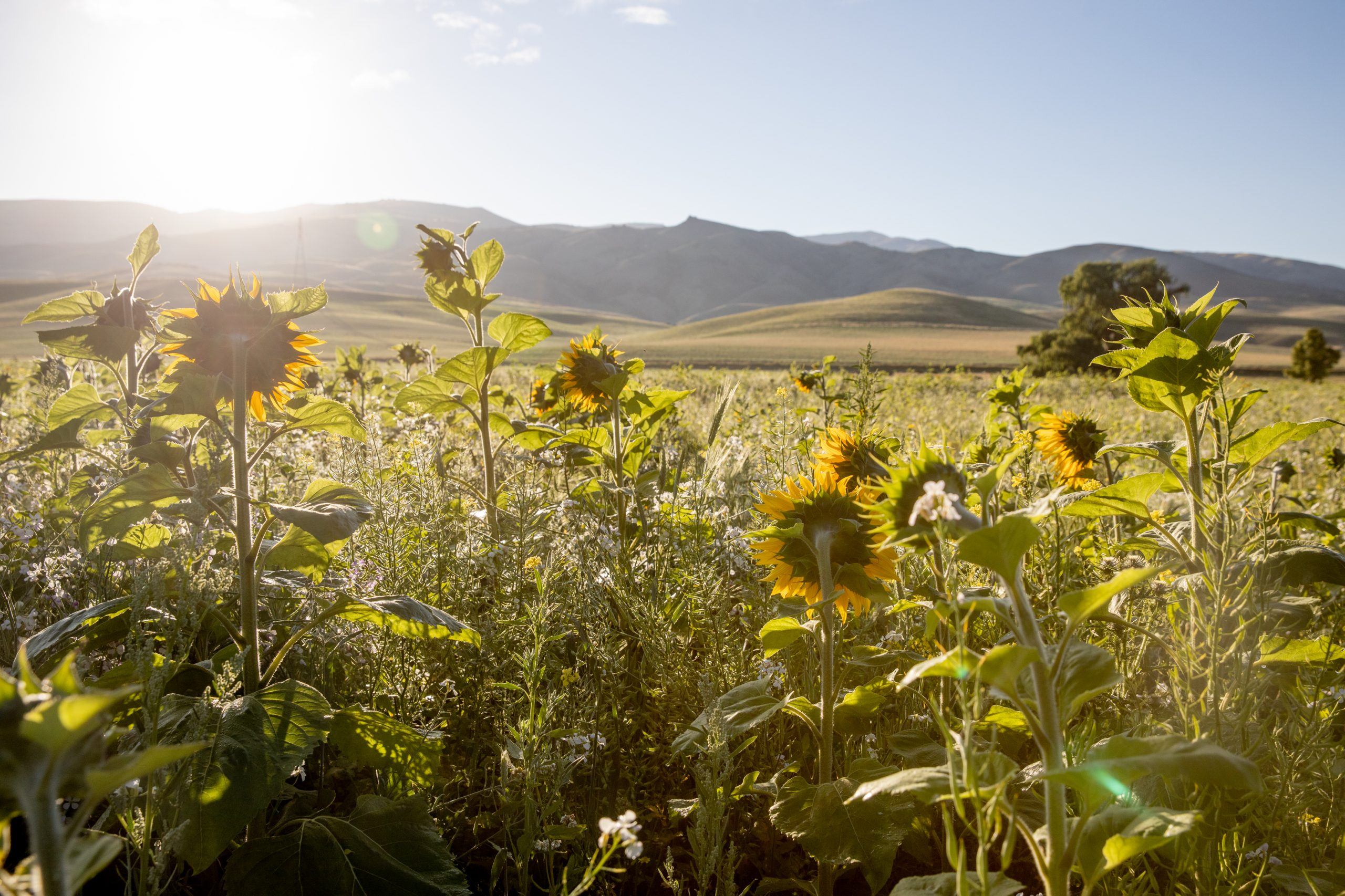Regeneration in the ecological sense encapsulates the renewal, restoration and revitalization of our natural systems to ensure we live within our natural planetary boundaries. The drastic social and economic changes currently being wrought by the COVID-19 pandemic are an opportunity for the world to get the balance right at last and pursue a regenerative future grounded in deeper connections between people, food and the land. Nature has called upon us to think differently and to tell a new story.

Photo: Camilla Rutherford @camillarutherford_photography
Our Regenerative Future looks at this opportunity through the lens of regenerative agriculture (regen ag) and highlights the recognition that conventional methods of farming, while efficient at maximising production, are doing a great deal of harm. The project grew out of Pure Advantage’s ongoing interest in the global soil carbon sequestration movement and how it presents an opportunity to spur Aotearoa’s climate change solutions in the medium term. The initiative is also aligned with work being carried out by several Fellows in the Edmund Hillary Fellowship who are focused on the business intersection of regen ag with organic foods, funding, coaching and entrepreneurship.
The following insights into regen ag in Aotearoa have been skilfully investigated and captured by Alina Siegfried, whose ability to connect empathically with those she interviews has resulted in this series of honest and compelling case studies with farmers, scientists and business sector experts who have adopted regenerative practices. In a list that is by no means exhaustive, the subjects cover: what’s driving the movement, through to whole system science and soil health; how regen ag approaches can ultimately reduce cost and environmental harm; how models being developed can provide an investment for impact; the economics of land use; improving the journey of organic foods to market; the role of community; and farmer mental health.

Photo: @planetrumble
Adopting regen ag is about doing what’s right for the land and farming with less harm; reducing or eliminating inputs from synthetic additives while enhancing the cycles of nature. Regen ag is not a one-size-fits-all approach, though certain themes are shared across agricultural contexts. In the case studies presented here, farmers have realized traditional ways weren’t working for them and that they no longer wanted to continue with the status quo. Although faced with the uncertainty associated with funding the transition to regenerative agriculture, these farmers have drawn upon the growing body of science and anecdotal evidence to set about researching and successfully making changes to establish farming systems that are more holistic and more biologically driven.
An exciting opportunity exists for NZ’s ag sector to pursue a regenerative approach that will ensure environmental sustainability while also developing a more resilient farming economy to meet consumer demands/trends, and to ambitiously scale this approach to the point we can achieve significant positive change across many climate, economic and social indicators.
Aotearoa New Zealand has a reputation as a progressive, innovative, caring and well-governed country, and we can further enhance this through a quick, science-led transition to environmentally sustainable agriculture. The timing for a global shift to carbon farming through the lens of regen ag is urgent, and NZ is ready for this major economic opportunity. In pivoting this way, NZ can look after our primary industries and show to the world it is still the best place to produce nutrient-dense, grass-fed food and fibre.

Photo: @planetrumble
Overall, Pure Advantage’s aim is to foster change for good, to enable these regen ag ideas and principles to transmit between farmers, and to engage all sectors of society to have maximum impact. We hope this work is a positive antidote and one that provides hope and opportunity – after all, farmers are some of our most essential workers. The sector must continue to focus on long-term sustainability and resilience in terms of production and the environment – biodiversity, soils, carbon, water – and only then can NZ build a resilient agricultural system to weather future storms.
Thank you to all those who have contributed to this series. It is my hope it can help many more Kiwi farmers realise that regen ag is a wonderful opportunity for them to embrace.
This story is part of a series called “Our Regenerative Future” produced in collaboration with Edmund Hillary Fellowship which investigates the current state of regenerative agriculture in New Zealand, and highlights future opportunities for the country’s primary production sector.




Leave a comment